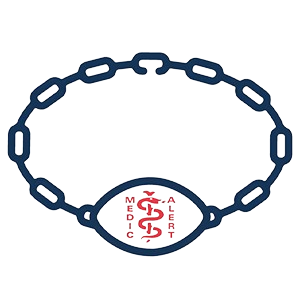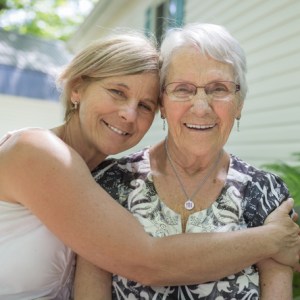Want to learn more?
About Diabetes
Learn more about this condition on the medical conditions page.
Read More >
Find Your ID
Get started with MedicAlert and get protected with your own ID.
Read More >
Conquering my type 1 diabetes
Today, Kimberly is leading an active, healthy life—and with the help of MedicAlert, she’s still helping others do the same.
Many people don’t realize that MedicAlert’s benefits extend far beyond the ID. If the unthinkable happens, Kimberly knows that with a MedicAlert Protection Plan, someone at MedicAlert can provide first responders with her complete medical history. This includes medications, conditions, doctors contact information, in case of emergency (ICE) contacts, and more.
Most importantly, “MedicAlert will contact my husband and tell him what’s happening,” Kimberly says. Having your loved one by your side in an accident or medical emergency is not a ‘perk’ but a necessity. No one should be alone in their moment of need. And with MedicAlert, they don’t have to be.
Kimberly’s belief in MedicAlert Foundation also drives her to be a loyal donor. For Kimberly, supporting a 501 (c)(3) nonprofit makes sense. “I am in the financial position to give,” she says, “and I’m grateful for MedicAlert.”




